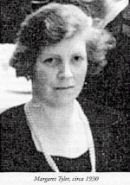EVERY Art and every Science has its own jargon, and the art of Repertorising is no exception. Let us get straight to terms.
Success in Repertorising depends on ability to deal with symptoms; and this has to be taught: it is not innate. People all the world over are wasting their lives, working out cases at enormous expenditure of time and minutest care, for comparatively poor results: and all for want of a little initial help. The key to the enigma, which they lack, is the GRADING OF SYMPTOMS… the grading of symptoms in such-wise as to economise labour without compromising results: and, in the cases where all the more-or-less-indicated remedies lack some symptom or other of the totality, to know which symptoms are of vital importance to the correct prescription; and which are of less importance, and may therefore probably be neglected; and also which may be safely used as eliminating symptoms, to throw out remedies by the dozen from the very start; and which cannot be safely used to throw out any remedies at all, on pain of perhaps losing the very drug one is in search of-the curative simillimum.
To begin with, symptoms are of two orders: (a) those general to the patient as a whole (Kent’s GENERALS), and (b) those particular, not to the patient as a whole, but to some part of him (Kent’s PARTICULARS).

